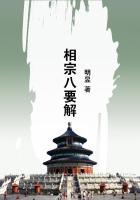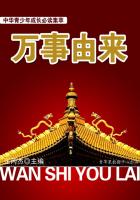Well, it was done now, and Michael felt that there were no new vexations to be sprung on his father. It was bound to happen, he supposed, sooner or later, and he was not sorry that it had happened sooner than he expected or intended. Sylvia so held sway in him that he could not help acknowledging her. His announcement had broken from him irresistibly, in spite of his mother's whispered word to him last night, "This is our secret." It could not be secret when his father spoke like that. . . . And then, with a flare of illumination he perceived how intensely his father disliked him. Nothing but sheer basic antipathy could have been responsible for that miserable retort, "Am I to bind up your broken heart?" Anger, no doubt, was the immediate cause, but so utterly ungenerous a rejoinder to Michael's announcement could not have been conceived, except in a heart that thoroughly and rootedly disliked him. That he was a continual monument of disappointment to his father he knew well, but never before had it been quite plainly shown him how essential an object of dislike he was. And the grounds of the dislike were now equally plain--his father disliked him exactly because he was his father. On the other hand, the last twenty-four hours had shown him that his mother loved him exactly because he was her son. When these two new and undeniable facts were put side by side, Michael felt that he was an infinite gainer.
He went rather drearily to the window. Far off across the field below the garden he could see Lord Ashbridge walking airily along on his way to the links, with his head held high, his stick swinging in his hand, his two retrievers at his heels. No doubt already the soothing influences of Nature were at work--Nature, of course, standing for the portion of trees and earth and houses that belonged to him--and were expunging the depressing reflection that his wife and only son inspired in him. And, indeed, such was actually the case: Lord Ashbridge, in his amazing fatuity, could not long continue being himself without being cheered and invigorated by that fact, and though when he set out his big white hands were positively trembling with passion, he carried his balsam always with him. But he had registered to himself, even as Michael had registered, the fact that he found his son a most intolerable person. And what vexed him most of all, what made him clang the gate at the end of the field so violently that it hit one of his retrievers shrewdly on the nose, was the sense of his own impotence. He knew perfectly well that in point of view of determination (that quality which in himself was firmness, and in those who opposed him obstinacy) Michael was his match. And the annoying thing was that, as his wife had once told him, Michael undoubtedly inherited that quality from him. It was as inalienable as the estates of which he had threatened to deprive his son, and which, as he knew quite well, were absolutely entailed. Michael, in this regard, seemed no better than a common but successful thief. He had annexed his father's firmness, and at his death would certainly annex all his pictures and trees and acres and the red roofs of Ashbridge.
Michael saw the gate so imperially slammed, he heard the despairing howl of Robin, and though he was sorry for Robin, he could not help laughing. He remembered also a ludicrous sight he had seen at the Zoological Gardens a few days ago: two seals, sitting bolt upright, quarrelling with each other, and making the most absurd grimaces and noises. They neither of them quite dared to attack the other, and so sat with their faces close together, saying the rudest things. Aunt Barbara would certainly have seen how inimitably his father and he had, in their interview just now, resembled the two seals.
And then he became aware that all the time, au fond, he had thought about nothing but Sylvia, and of Sylvia, not as the subject of quarrel, but as just Sylvia, the singing Sylvia, with a hand on his shoulder.
The winter sun was warm on the south terrace of the house, when, an hour later, he strolled out, according to arrangement, with his mother. It had melted the rime of the night before that lay now on the grass in threads of minute diamonds, though below the terrace wall, and on the sunk rims of the empty garden beds it still persisted in outline of white heraldry. A few monthly roses, weak, pink blossoms, weary with the toil of keeping hope alive till the coming of spring, hung dejected heads in the sunk garden, where the hornbeam hedge that carried its russet leaves unfallen, shaded them from the wind. Here, too, a few bulbs had pricked their way above ground, and stood with stout, erect horns daintily capped with rime. All these things, which for years had been presented to Lady Ashbridge's notice without attracting her attention; now filled her with minute childlike pleasure; they were discoveries as entrancing and as magical as the first finding of the oval pieces of blue sky that a child sees one morning in a hedge-sparrow's nest. Now that she was alone with her son, all her secret restlessness and anxiety had vanished, and she remarked almost with glee that her husband had telephoned from the golf links to say that he would not be back for lunch; then, remembering that Michael had gone to talk to his father after breakfast, she asked him about the interview.
Michael had already made up his mind as to what to say here.
Knowing that his father was anxious about her, he felt it highly unlikely that he would tell her anything to distress her, and so he represented the interview as having gone off in perfect amity.
Later in the day, on his father's return, he had made up his mind to propose a truce between them, as far as his mother was concerned. Whether that would be accepted or not he could not certainly tell, but in the interval there was nothing to be gained by grieving her.
A great weight was lifted off her mind.

